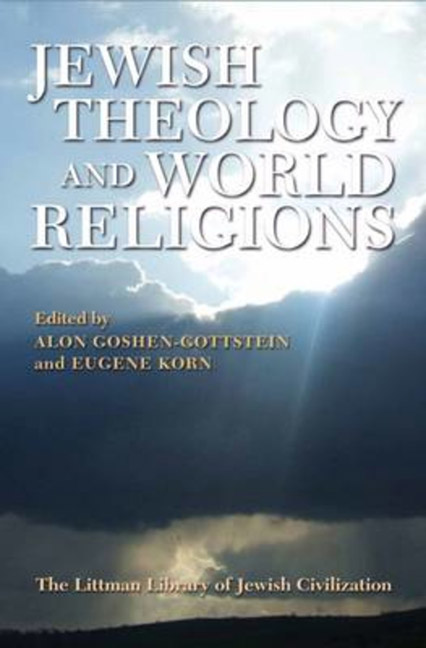Book contents
- Frontmatter
- Dedication
- Preface
- Contents
- Note on Transliteration
- Towards a Jewish Theology of World Religions: Framing the Issues
- PART I PHILOSOPHICAL PERSPECTIVES ON JEWISH PLURALISM
- 1 Jewish Views of World Religions: Four Models
- 2 Justifying Interreligious Pluralism
- 3 Pluralism out of the Sources of Judaism: The Quest for Religious Pluralism without Relativism
- 4 Respectful Disagreement: A Response to Raphael Jospe
- PART II JUDAISM AND THE OTHER
- PART III JUDAISM AND WORLD RELIGIONS
- Concluding Reflections
- Notes on the Contributors
- Index
1 - Jewish Views of World Religions: Four Models
from PART I - PHILOSOPHICAL PERSPECTIVES ON JEWISH PLURALISM
- Frontmatter
- Dedication
- Preface
- Contents
- Note on Transliteration
- Towards a Jewish Theology of World Religions: Framing the Issues
- PART I PHILOSOPHICAL PERSPECTIVES ON JEWISH PLURALISM
- 1 Jewish Views of World Religions: Four Models
- 2 Justifying Interreligious Pluralism
- 3 Pluralism out of the Sources of Judaism: The Quest for Religious Pluralism without Relativism
- 4 Respectful Disagreement: A Response to Raphael Jospe
- PART II JUDAISM AND THE OTHER
- PART III JUDAISM AND WORLD RELIGIONS
- Concluding Reflections
- Notes on the Contributors
- Index
Summary
THEOLOGY of religions is a growing discipline within the broader context of Christian theology, and Jews sometimes wonder whether Judaism has a theology, let alone a theology of religions. Judaism possesses both, and when viewed historically, Jews have rich resources that they can use to reflect on other religions and to construct contemporary theologies of other religions. The goal of this chapter is to introduce a range of traditional sources bearing on the question of the theological relationship between Judaism and other religions.
While the discussion of other religions has characterized Judaism in some way since its very formation, this discussion has particular value in the present circumstances, both practically and theoretically. In practical terms, it serves the growing field of interfaith relations by providing a framework for understanding relations between religions. In theoretical terms, it enables Jews to benefit from recent insights and approaches developed by the discipline of theology of religions. This chapter seeks to examine a wide variety of Jewish texts in the light of categories originally developed in the framework of a Christian theology of religions. I will focus on four categories (inclusivist, universalist, pluralist, and exclusivist,) and will analyse traditional Jewish sources within their framework.
Alan Race first suggested the above categories in 1982.Their popularization in the writings of the British philosopher of religion John Hick (b. 1922) led to their wide use in the field of theology over the past twenty-five years. This is their first extended application to a wide variety of Jewish opinions, and even as I apply them first to Judaism, they have begun to reach their limits of usefulness and have already attracted criticism. Some critics have noted that, in practice, theologians rarely fit neatly into one of the categories. Only philosophers who construct their theories a priori can fit totally into a single category. Theologians, who work with the complexity of textual traditions and social circumstances, cannot be thus restricted, and lived communities of faith can never operate in a single mode. Some thinkers will be included in one, two, three, or all four categories.
- Type
- Chapter
- Information
- Jewish Theology and World Religions , pp. 41 - 60Publisher: Liverpool University PressPrint publication year: 2012

